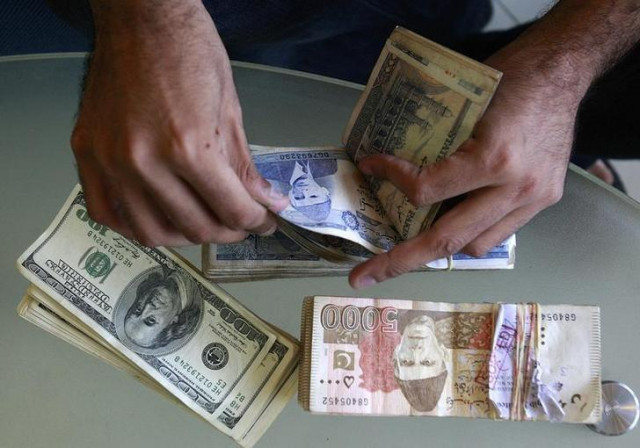Money in national savings written as ‘govt’s revenue’
Rs20b of investment made by general public, including widows and senior citizens, booked as non-tax revenue

PHOTO: REUTERS
The Finance ministry has amended the Central Directorate of National Savings (CNDS) Rules that will expand the scope of ‘dead accounts’ to the total Rs3.4 trillion investments by people in the National Savings Schemes, said sources in the finance ministry. The rules were amended just before the close of fiscal year 2016-17 that ended on June 30.
They said that as a result of this amendment, the finance ministry immediately booked a windfall gain of roughly Rs20 billion as its non-tax revenue for last fiscal year. Although, the amount would not have any meaningful impact on the last fiscal year’s overall budget deficit, it has set a precedent for future to book depositors’ money as non-tax revenue.
WB approves $223m with focus on banking services, Karachi
The finance ministry has already double booked Rs64 billion of Pakistan Development Fund Limited as its non-tax revenue by showing it as sale proceeds of two LNG power plants.
Earlier, the dead account rules covered only Rs760 billion or 22% of the total investment, which was made in all kinds of saving accounts, the sources said. Now the scope of the rule has been extended to all kind of certificates and prize bonds, they added.
By this single act, the rule of dead account will be applicable to Defence Saving Certificates having Rs328 billion investment, Bahbood Saving Certificates in which widows and senior citizens have invested Rs746 billion and Regular Income Certificates carrying Rs335 billion investment of general public.
The move is likely to dent the trust of depositors who considered their investments in safe hands, irrespective of the fact whether they generated any activity in their accounts. This has brought the level of protection available to the investors of National Saving Schemes down to the level of protection offered by the commercial banks.
Change in rule
Under the existing rule, if a depositor of a scheme other than of a saving account does not generate activity in the account for a certain period, his investment would be marked as dormant. However, now the federal government has prescribed time limits for keeping the money in the dormant account. After the expiry of the period, the investment would be treated as lapsed and would be booked as the government’s non-tax revenue.
For instance, if a widow does not claim a deposit after one year of maturity of her investment in Bahbood Saving Certificate, the account will be marked as dormant. If the account remains inactive for two years, the investment will be treated as lapsed, explained an official of the finance ministry.
Debt retirement plan: SBP says some deposits still remain unpaid
Finance ministry response
The Express Tribune sent questions to Director General of Central Directorate of National Savings (CDNS) Zafar Masood about two weeks ago. However, instead of Masood, the finance ministry gave a response on Tuesday.
“The government of Pakistan has amended Central Directorate of National Savings Rules, under Section 28 of the Public Debt Act 1944, governing Dead Accounts (Dormant plus Lapse to the Government) of National Savings Schemes, extending the provision to all National Savings Schemes,” confirmed the finance ministry on Tuesday.
It said that this was done after an extensive exercise for over six-months, to safeguard the interest of CDNS investors to mitigate the risk of misuse of dead accounts and certificates.
“The provision for Dead Accounts/Certificates was always been there in Savings Account Rules, under The Government Savings Bank Act 1873, and has been followed regularly and acted upon periodically”, it added.
The finance ministry said that before implementing these provisions, CDNS ran awareness campaign about these dead accounts and certificates in 24 regional and national dailies for more than three weeks. As a result, around 20% of the dead accounts and certificates were actually reactivated, it added.
It said that these dead accounts and certificates are revivable upon legitimate claim by the customers at any time, and the process of revival has been working smoothly and perfectly since.
The finance ministry said that the sole objective of amending the rules was to protect the interest of investors of CDNS to take care of potential risk of fraud and forgeries in unattended accounts and certificates.



















COMMENTS
Comments are moderated and generally will be posted if they are on-topic and not abusive.
For more information, please see our Comments FAQ